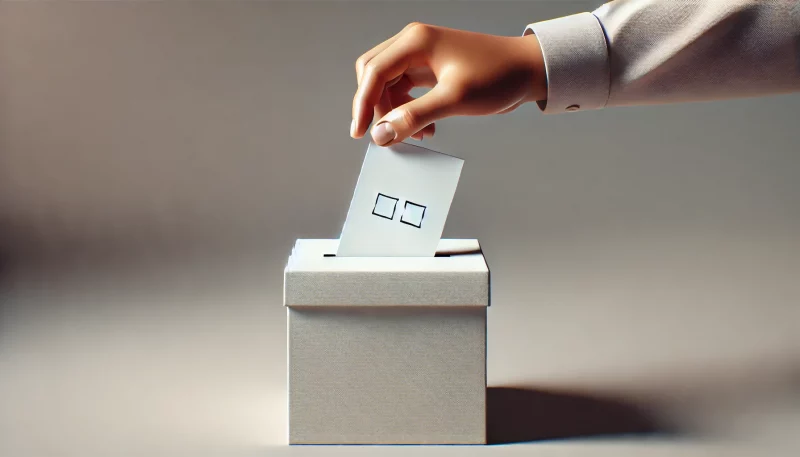Key Takeaways
- Trump has reversed his critical view of cryptocurrencies, now promoting a deregulated approach.
- His pro-crypto stance aligns with substantial campaign donations from industry leaders.
Share this article
Former US President Donald Trump, who recently survived an assassination attempt, has made a notable shift in his stance on crypto, positioning the technology as a key campaign issue for the 2024 presidential election. This change represents a significant departure from his previous skepticism towards crypto and digital assets.
Trump dismissed crypto at least five years ago, stating that its value was based on “thin air” and expressing concerns about its potential to facilitate illegal activities. However, as the 2024 election approaches, the former president has adopted a pro-crypto stance, aligning himself with industry interests and appealing to a growing base of crypto voters.
Trump’s evolving position on crypto appears to be influenced by several factors, including substantial donations from industry figures and the potential to attract younger voters. The Winklevoss twins, founders of the Gemini crypto exchange, are among the high-profile donors who have contributed to Trump’s campaign following his shift in stance.
The former president’s crypto agenda includes promoting Bitcoin mining in the United States, protecting self-custody of digital assets, and opposing the development of a central bank digital currency (CBDC) by the Federal Reserve. These positions align closely with the wishes of many in the crypto industry who have faced increased regulatory scrutiny under the Biden administration.
Brian Morgenstern, head of public policy at crypto miner Riot Platforms Inc. and a former Trump administration official, highlighted the potential regulatory shift under a second Trump term.
“In a Trump administration, you are not going to see bank regulators forcing banks to close bank accounts of crypto companies,” Morgenstern stated. “He would not use the Energy Department to single out Bitcoin miners,” Morgenstern adds.
While specific policy details remain to be clarified, Trump’s campaign has indicated a commitment to encouraging American leadership in emerging technologies, including crypto. Senior campaign adviser Brian Hughes emphasized this point, stating:
“While Biden stifles innovation with more regulation and higher taxes, President Trump is ready to encourage American leadership in this and other emerging technologies.”
Trump’s engagement with the crypto community has extended beyond policy statements. He has hosted meetings with Bitcoin miners at his Mar-a-Lago Club and is scheduled to speak at the Bitcoin 2024 conference on July 27, where he may provide more concrete details about his crypto-related plans.
The former president’s pivot on crypto policy appears to be resonating with a segment of Republican voters. A recent poll by crypto venture capital firm Paradigm found that at least 28% of registered Republicans have invested in, traded, or used crypto. A further 13% of Republicans who were not planning to vote for Trump said in the poll that his new pro-crypto stance might influence their views.
This shift in position has not gone unnoticed by the crypto industry. Marathon Digital Holdings’ senior vice president of government affairs, Jayson Browder, who attended a recent meeting with Trump, notes the political calculus behind the move.
“Trump is seeing this divide and he is using it as a wedge issue,” Browder observed. “Politically it makes sense: We believe that these constituents will vote.”
The timing of Trump’s crypto embrace coincides with a period of renewed optimism in the crypto markets. Bitcoin is trading near its all-time high reached in March, following the January launch of spot Bitcoin ETFs. This market resurgence has buoyed the fortunes of many crypto companies that weathered the previous downturn. At the time of writing, Bitcoin has climbed back to the $65,000 level, two days after Trump survived the shooting.
However, the industry continues to face significant regulatory challenges. The Securities and Exchange Commission has pursued enforcement actions against major players like Coinbase and Binance, while banking regulators have made it increasingly difficult for crypto businesses to maintain traditional financial relationships.
Many in the crypto sector hope that a potential Trump administration could alleviate these regulatory pressures, possibly through executive orders or the appointment of a more crypto-friendly SEC chair. Despite the presidential candidate being a convicted felon, and despite warnings by Nobel economists, meme coins categorized under the “PolitiFi” label continue to surge in popularity, with the primary Trump meme coin, MAGA, seeing a 51% surge.
However, the volatility of crypto markets and the sector’s history of scandals, in particular with the collapse of FTX and the sentencing of Sam Bankman-Fried, could potentially influence Trump’s stance in the future.
As the 2024 election approaches, Trump’s embrace of crypto represents a significant shift in the political landscape surrounding digital assets. Whether this strategy will translate into electoral success and tangible policy changes remains to be seen, but Trump’s recent actions and history have undoubtedly elevated the profile of crypto issues in the upcoming presidential race.
Share this article
This article was originally published by a cryptobriefing.com . Read the Original article here. .


